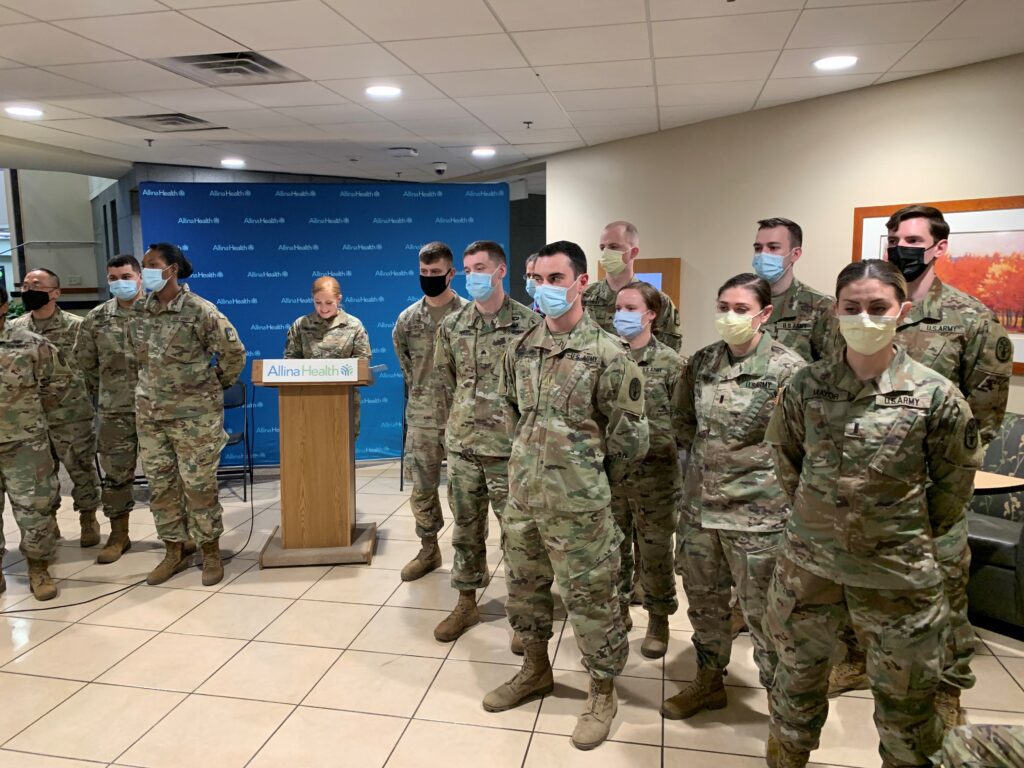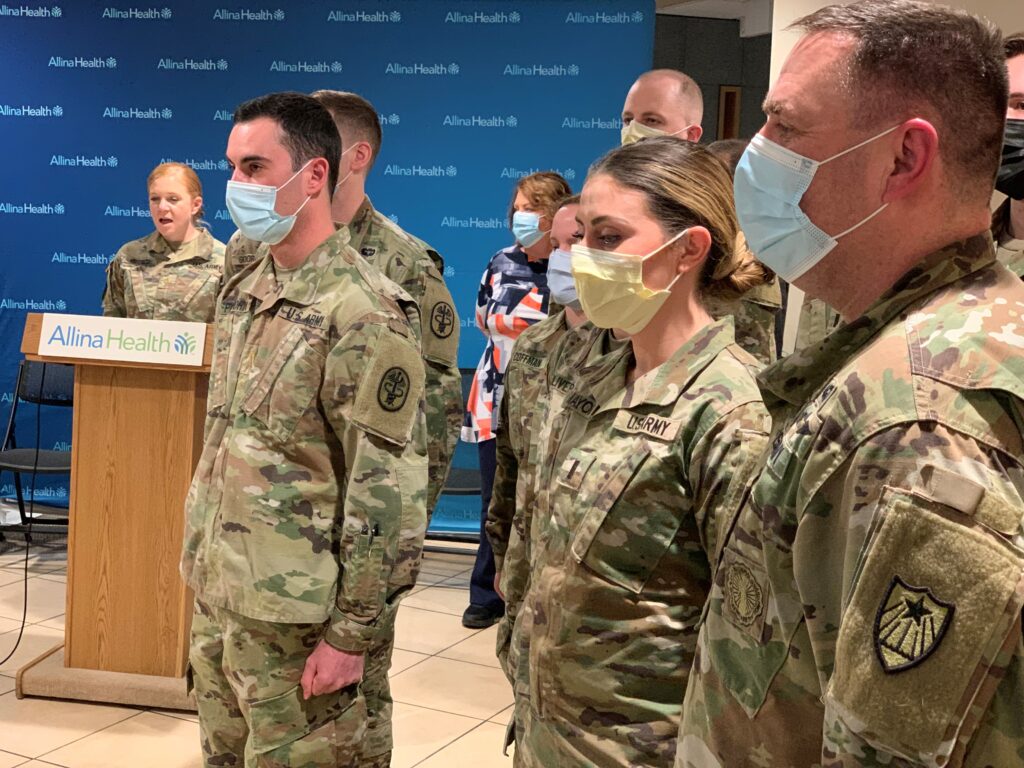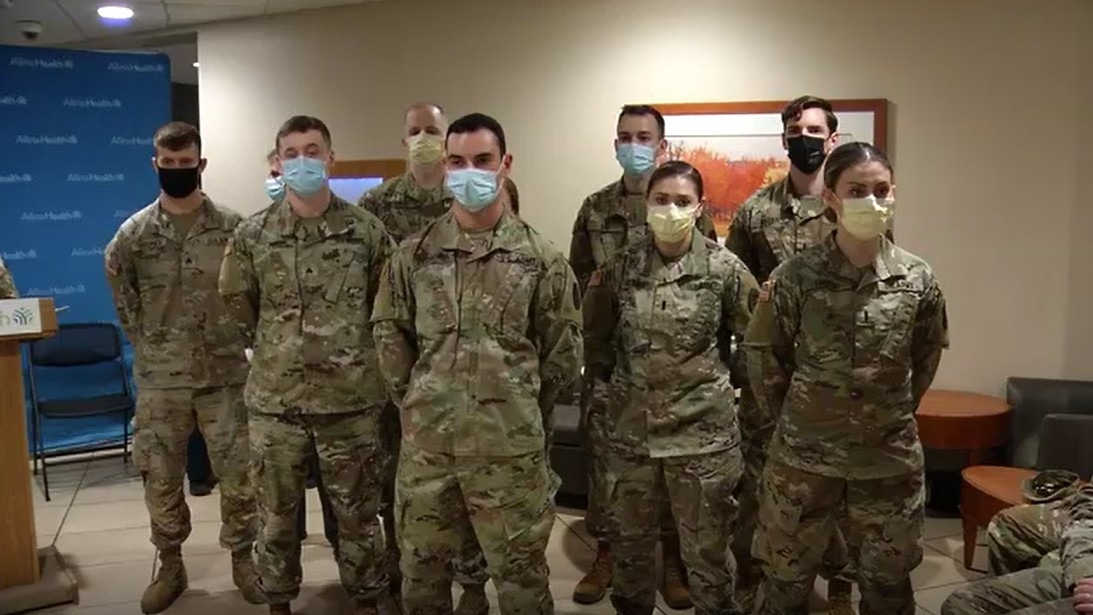As federal medical team leaves, progress in pandemic comes with caution
After more than a month of helping a Minneapolis hospital through some of their toughest days during the pandemic, a farewell ceremony was held for a federal medical team.
The Department of Defense team filled with specially trained doctors, nurses and other healthcare workers arrived at Abbott Northwestern hospital in late January to help with surging hospitalizations and community spread of COVID-19.
RELATED: Federal help at hospitals aim to ease pressure

“At one point, we had over 100 COVID patients here in the hospital,” Carol Koeppel-Olson, vice president of patient care and chief nursing office with Abbott Northwestern, said. “Today, we have 20 – that just makes all the difference in the world,” Koeppel-Olson added Wednesday.

The departure is coming during a time of eased restrictions, busier restaurants and slower community spread – but it’s also happening on the verge of what could become another surge.
One of The Mayo Clinic’s top infectious disease specialists, Dr. Gregory Poland, is “urging caution” for those who appreciate those steps towards the end of the pandemic.
“Let’s walk toward a possible finish line and not run towards it,” Dr. Poland said.

Dr. Poland is keeping an eye on levels of COVID-19 in wastewater.
Towards the end of February and intro early March, the Center for Disease Control and Prevention (CDC) reports that 37% of wastewater sites it’s tracking had an increase of 100% or more in the presence of COVID-19 – about a third of those wastewater sites had at least a 1,000% increase.
“All of this in the last two-to-three weeks that people have been taking masks off and pretending that the pandemic is over,” Dr. Poland said. “So, we still have to be vigilant [right now].” Another concern, that could lead to a surge, is the incredible massive influx of refugees into western Europe – Dr. Poland said only about 35% of them are vaccinated. Adding, what has happens in Europe tends to happen in the U.S. as well.